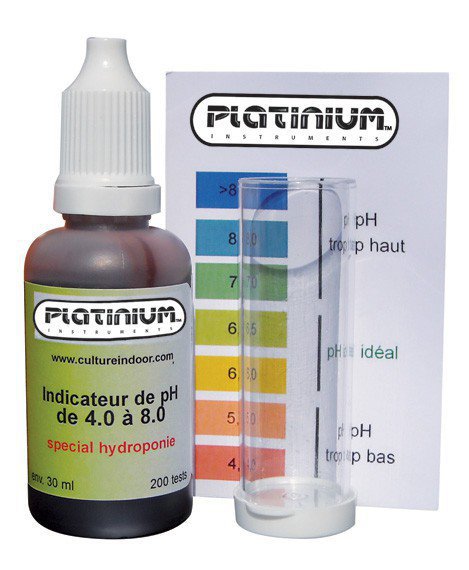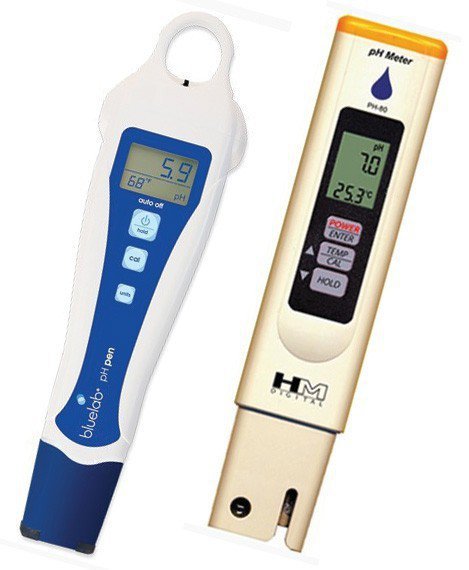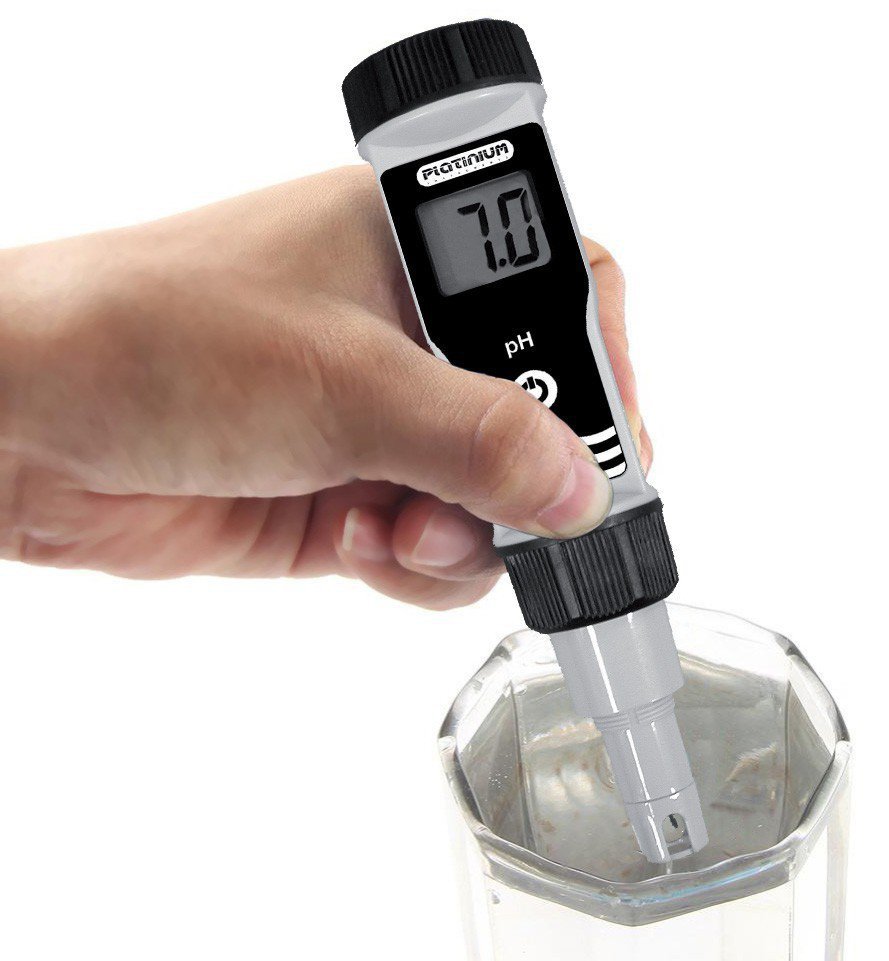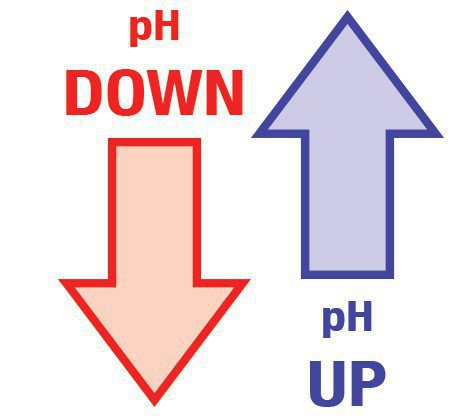What is pH and what to do?
The pH explained by growshops.fr, your online horticultural adviser.
Growshops.fr presents you through its vast online catalog, a whole range of articles to measure and control the pH values of a nutritive solution or a substrate.
What is pH ?
In chemistry, pH ranges from 0 to 14, neutral being pH 7.0. From there, any solution above pH 7.0 is said to be alkaline or basic; below this value, the solution is said to beacidic.

Measurements of hydrogen potential (pH) are made with pH testers, basic or electronic.
In horticulture, it is essential to measuring waterin horticulture, the pH plays a major role in theassimilation of nutrients by the roots and its values must be adapted according to the substrate used and the various phases of culture in which the plants are.
 |
... | In its primary form, such as the Test Kit pH distributed by Platinium Instrumentsthis pH indicator works on the principle of a color reagent that allows to display a value corresponding to a color that reacts to the contact of the nutritive solution and to be identified on a colorimetric chart (card included with the Test Kit pH). |
 |
... | More advanced and above all much more precis in their indications, the electronic pH meters are reliable instruments, easy to read. However, they require some precautions for use and maintenance to ensure rigorous precision and correct durability. |
Find all the equipment to measure and control the pH of the nutritive solution or substrate, through its category PH EC Testersyou can find all the equipment to measure and control the pH of the nutrient solution or substrate, through its category, at the best prices on the net on your favorite site, growshops.fr.
Thus, you will find brands with an internationally recognized reputation, such as HM Digital, BlueLab or Platinium Instruments.
Why and how should pH values be checked during indoor planting?
 |
... |
First of all, it is necessary to know that the pH values to be obtained vary from one substrate to another and according to the stage of culture where the plants are. However, whatever the growing method used, it is important to propose an acidic to slightly acidic solution, as the nutrients will then be optimally assimilated and consequently, the plants will be more perennial and therefore productive. Thus, on a hydroponic medium (clay balls, coconut fibers, rock wool,...), it is advisable to adopt a pH varying from 5.6 to 6.0 during the growth phase and from pH 6.0 to pH 6.4 during flowering (and rinsing). On potting soils, the nutrient solution applied should be calibrated between pH 6.2 and pH 6.6 during growth, to evolve during the flowering or fruiting stage (including rinsing) between pH 6.6 and pH 7.0. Similarly, all sprays, whatever their nature (nutritive, preventive or curative), should be diffused at pH 5.8, so that the stomata of the plants are more receptive to these foliar applications. |
Once equipped with a pH tester, and to correct the pH values thus obtained, there are solutions, liquids or powders, to lower these pH levels, or on the contrary, to increase them (a rarer situation).
|
Therefore, we speak of pH Down, a horticultural acid to lower the pH values, and pH Up , which is an alkaline or basic solution to raise the pH level. These pH correcting formulas are available from many brands, such as The
|
 |
How are electronic pH testers used and maintained?
Since fertilizers and other additives are, in most cases, slightly acidic to acidic, it is important to apply and dilute these products correctly in the nutrient solution before taking pH readings, and only then modify them as required.
In order to guarantee the longest possible life and, above all, the accuracy of the data displayed, the electronic pH meters require regular maintenance.
Because of their fragility and porosity, the probes of electronic pH testers must be constantly stored in a conservation solution, such as Refill and Storage from The
Or failing that, they should be permanently immersed in mineral or spring water.
Similarly, all brands distributing pH meters advise to immerse the probe of this instrument in a cleaning solution, such as the pH Probe Cleaner from the company The Growth Technology.
As the probe must not come into contact with a solid, this monthly operation ensures the gentle removal of any roughness that may interfere with the daily readings of the pH meter.
Finally, monthly calibration of pH meters is a must if you want to ensure the accuracy of the pH readings displayed.
In fact, this calibration is carried out exclusively with the help of one or more calibration buffer solutions, called buffers, such as Buffer pH 7 and the Buffer pH 4distributed by The Growth Technology.
growshops.fr, your online horticultural advisor.

